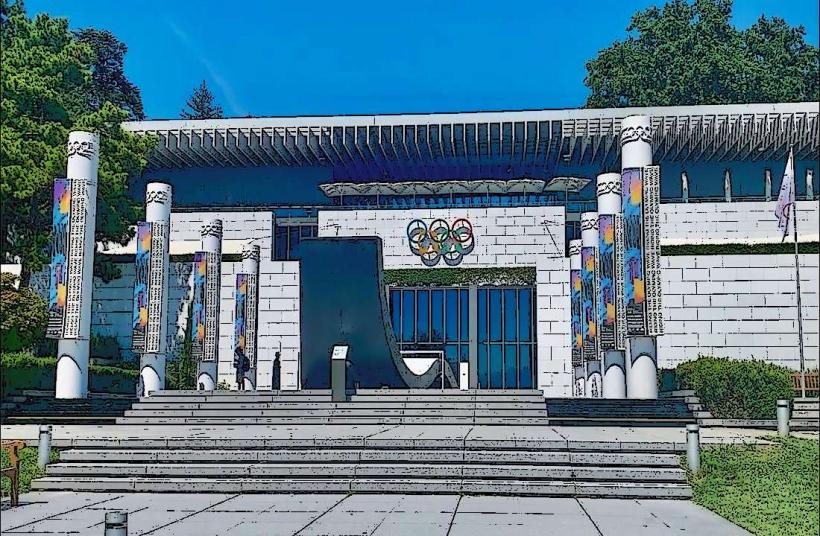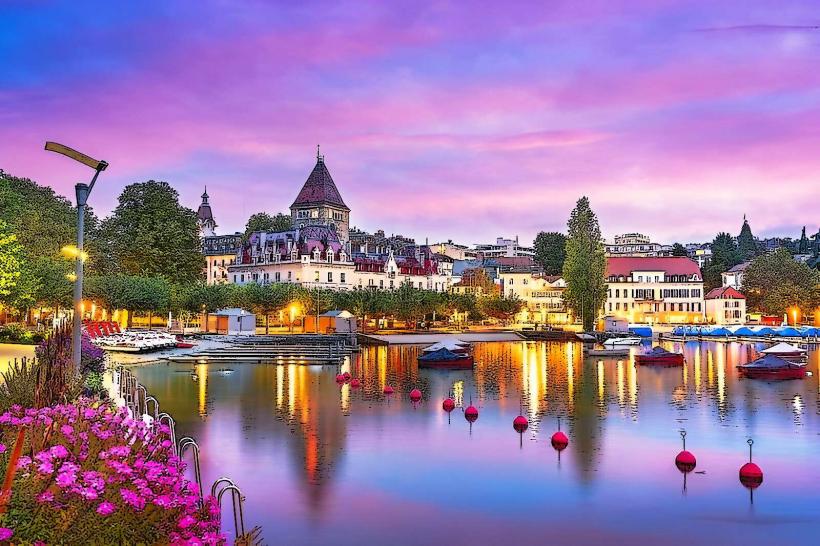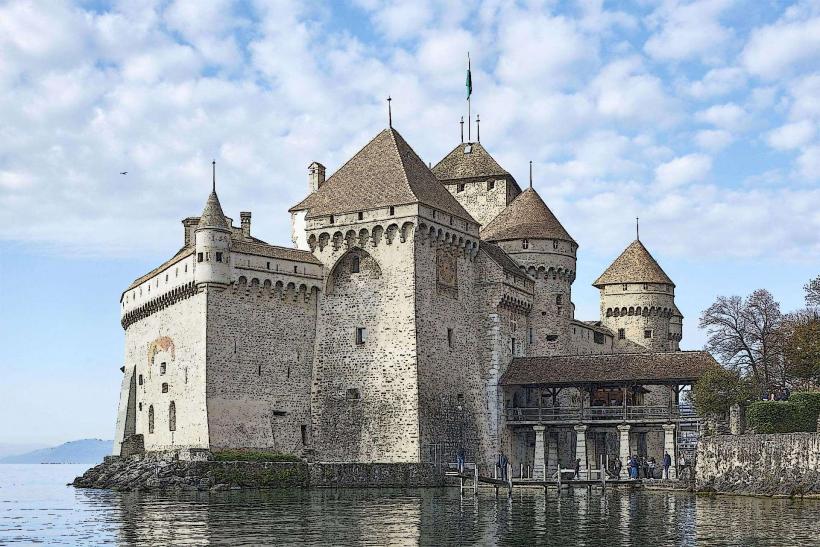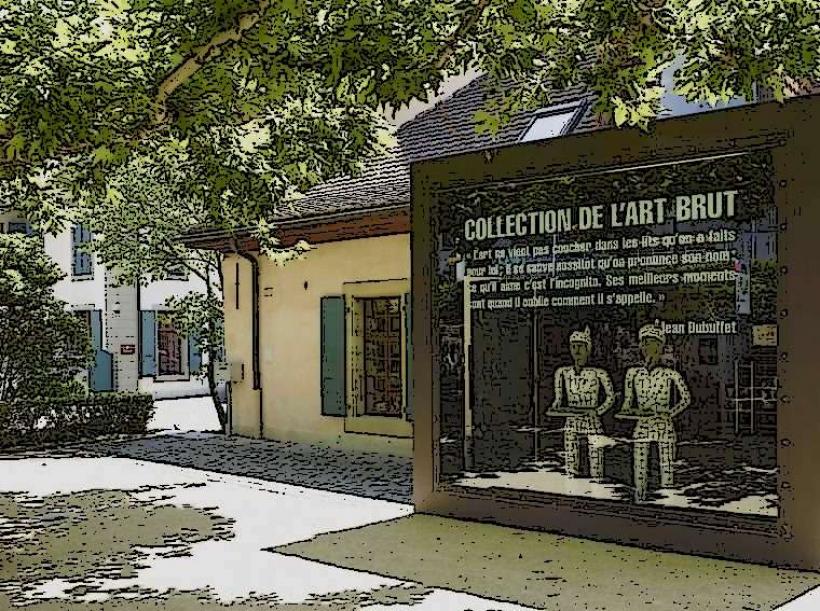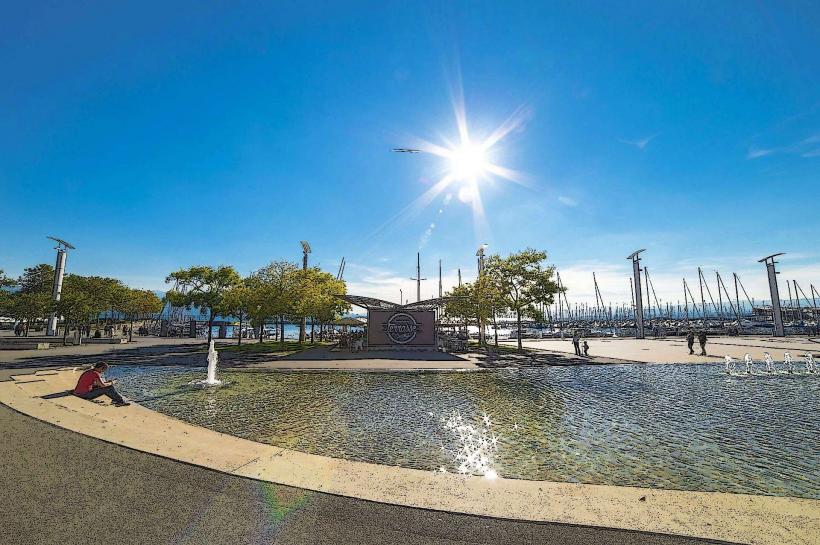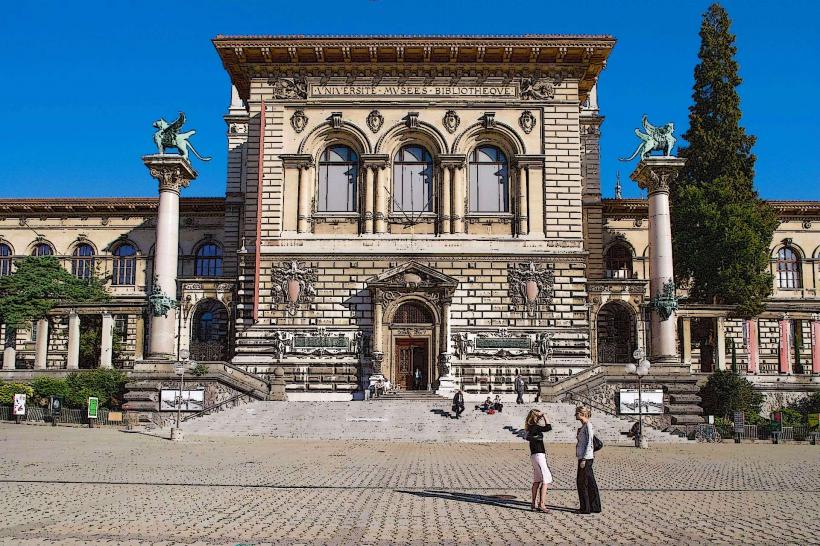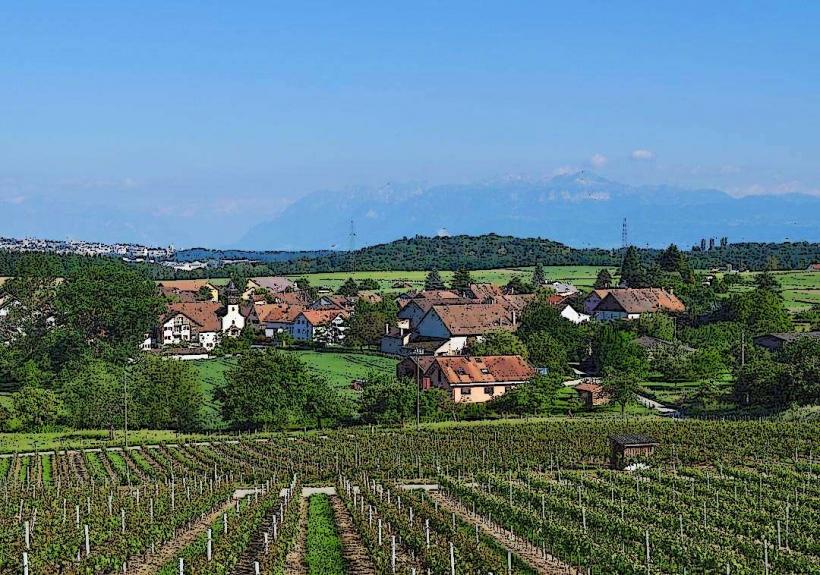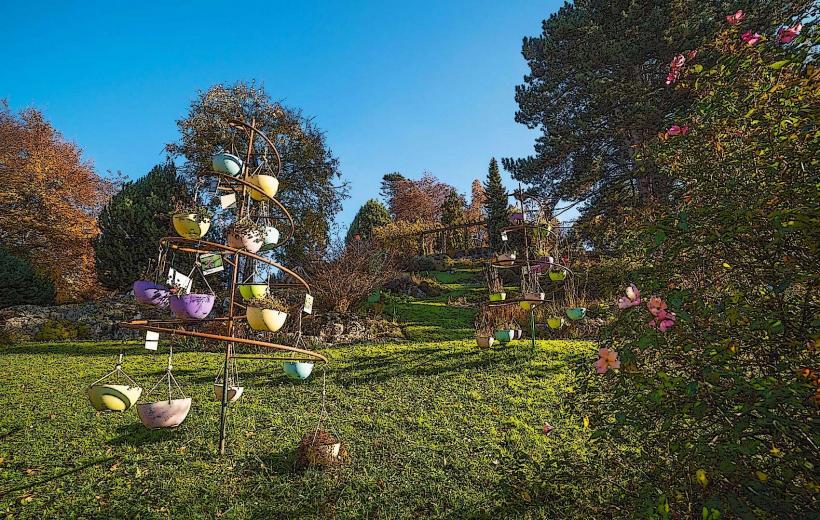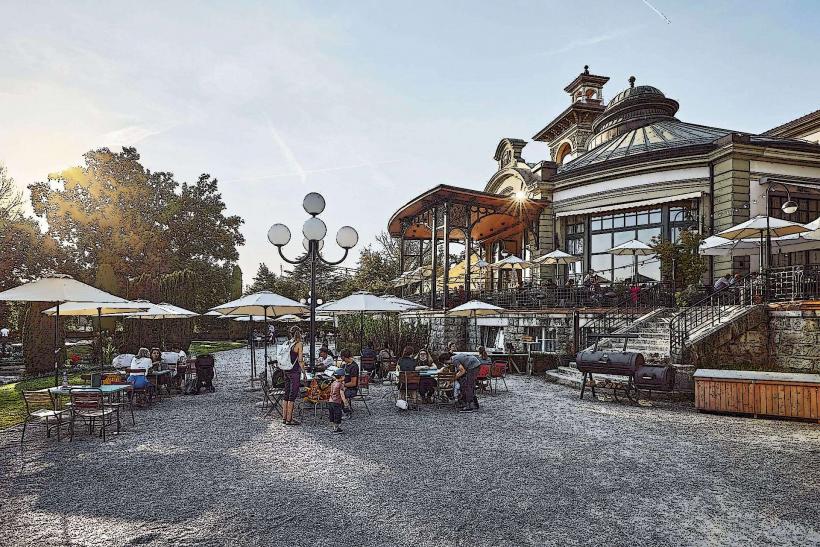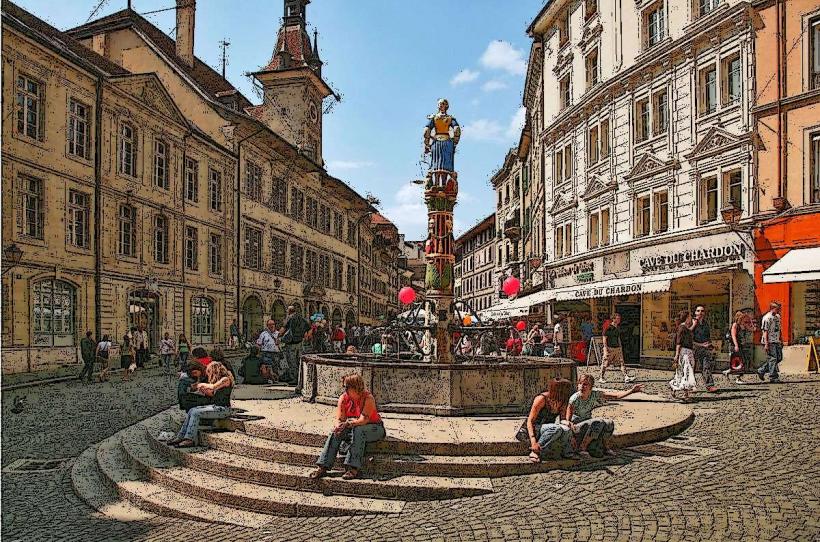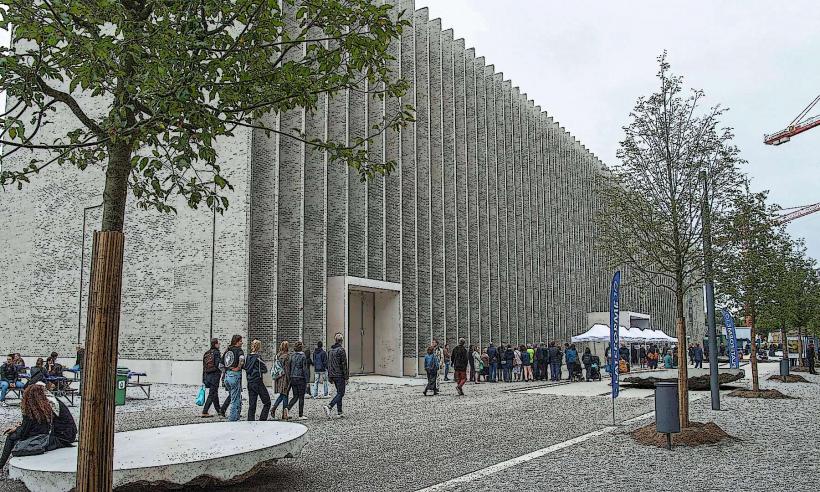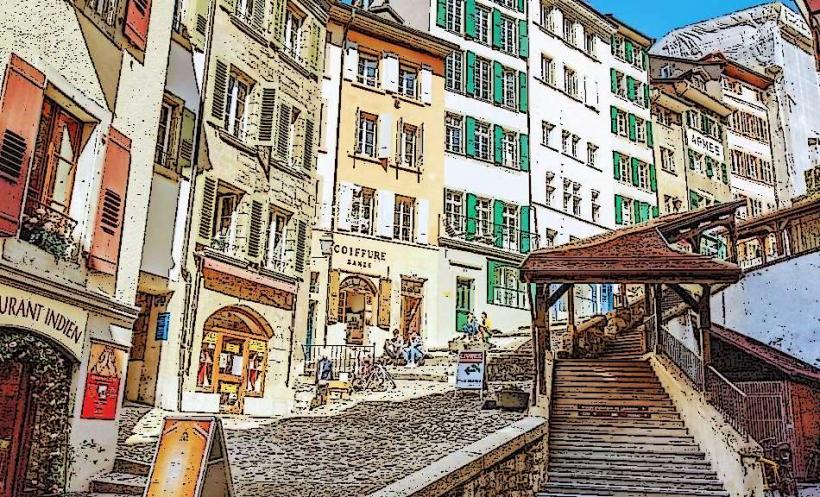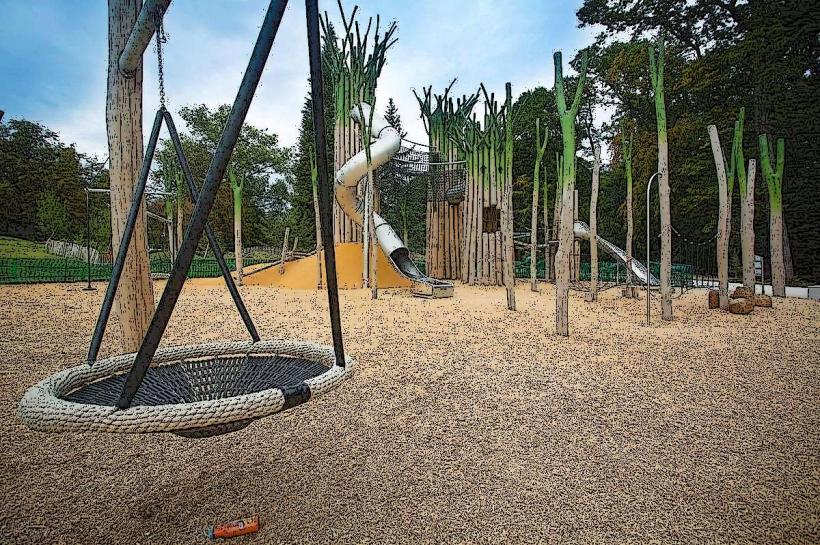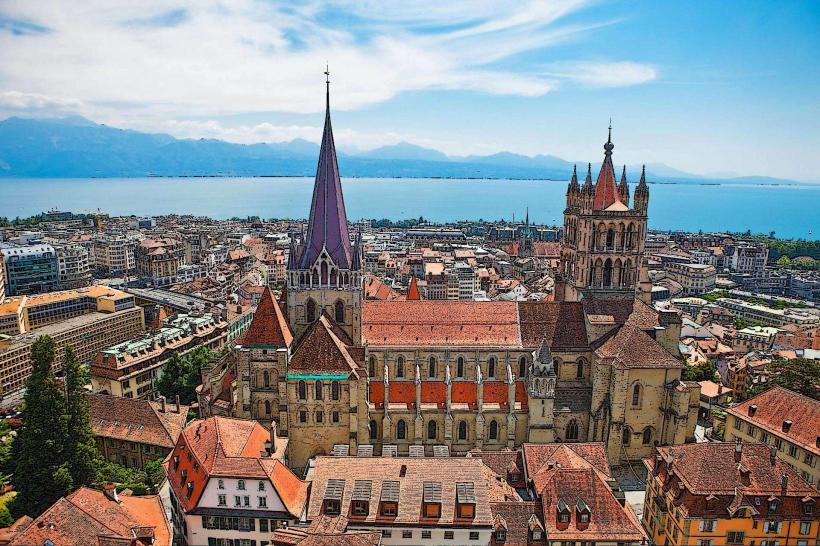Information
City: LausanneCountry: Switzerland
Continent: Europe
Lausanne is a vibrant city located on the shores of Lake Geneva in western Switzerland, in the canton of Vaud. It is the fourth-largest city in Switzerland and is renowned for its scenic beauty, rich cultural heritage, and status as a global center for sports administration. Lausanne’s combination of picturesque landscapes, historic architecture, and modern amenities makes it a standout city in Switzerland.
1. Geography and Climate
- Location: Lausanne is located on the northern shore of Lake Geneva (Lac Léman), with a backdrop of the Swiss Alps to the east. The city is situated about 40 kilometers (25 miles) northeast of Geneva and 140 kilometers (87 miles) west of Zurich, making it a key hub in the French-speaking part of Switzerland.
- Climate: Lausanne enjoys a temperate climate, with warm summers and mild winters due to its lakeside position. Summer temperatures typically range from 20°C to 25°C (68°F to 77°F), with occasional heatwaves. Winters are relatively mild, with average temperatures around 0°C to 5°C (32°F to 41°F), but snow can occur in the surrounding hills. Rainfall is fairly evenly distributed throughout the year, and the city enjoys relatively high levels of sunshine, especially in summer.
2. History
- Early History: Lausanne's history dates back to Roman times when it was known as Lousanna. It was an important settlement in the Roman Empire due to its strategic position along trade routes. Archaeological remains from this period can still be seen in the city.
- Medieval and Renaissance Periods: During the medieval period, Lausanne became a religious center, home to the Lausanne Cathedral, which is a prime example of Gothic architecture. In the 16th century, Lausanne became a hub for the Protestant Reformation in Switzerland. The city was influenced by key reformers such as Jean Calvin and became a center of Protestantism.
- Modern Era: The city grew rapidly in the 19th and 20th centuries, largely due to the industrialization of Switzerland, the establishment of international organizations, and its role as a global center for the Olympic movement.
3. Economy
- Finance and Commerce: Lausanne is one of Switzerland's key economic centers, known for its banking sector and growing commercial industries. It is home to many international companies, particularly in the high-tech, pharmaceutical, and finance sectors. Companies like Nestlé, the world's largest food and beverage company, have a significant presence in the region.
- Sports Industry: Lausanne is particularly recognized as the headquarters of the International Olympic Committee (IOC), making it the global center for the sports industry. The presence of the IOC and various international sports organizations has helped drive the city's economy, particularly in fields related to sports technology and management.
- Tourism: Lausanne’s picturesque lakeside setting, cultural institutions, and sporting events make it a popular tourist destination. Attractions such as the Lausanne Cathedral, the Olympic Museum, and the Ouchy waterfront district contribute significantly to the local economy.
4. Culture and Arts
- Museums and Galleries: Lausanne is home to numerous cultural and artistic institutions. The Musée de l'Élysée is a renowned museum dedicated to photography, while the Musée Cantonal des Beaux-Arts (Museum of Fine Arts) boasts an impressive collection of Swiss and international art, including works by Goya, Monet, and Van Gogh.
- Lausanne Opera: The Opéra de Lausanne is one of the city's premier cultural venues, offering a variety of performances, including opera, ballet, and classical music. The city’s Salle Métropole is another significant venue for classical music and concerts.
- International Cultural Events: Lausanne hosts several cultural festivals and events throughout the year, including the Festival de la Cité, a celebration of music, theater, and dance, and Les Rencontres Trans Musicales, a music festival that draws international artists.
- Theater and Cinema: Lausanne also has a thriving theater scene with venues like the Théâtre de Vidy and Théâtre de Beausobre, which offer a mix of contemporary and classical performances. The Cinéma Bel-Air and Cinéma Capitol are key spots for film lovers, showing a mix of Swiss and international cinema.
5. Landmarks and Attractions
While you requested a focus outside of landmarks, some of the notable ones in Lausanne include:
- Lausanne Cathedral: A Gothic masterpiece with an impressive façade and panoramic views from its tower.
- Olympic Museum: Dedicated to the history of the Olympic Games, located in Ouchy, overlooking Lake Geneva.
- Ouchy Promenade: A picturesque lakeside district with parks, cafés, and views of the Alps, ideal for strolling and relaxation.
- Château Saint-Maire: A 15th-century castle overlooking the old town, which houses the city’s administrative offices.
- Collection de l'Art Brut: A museum dedicated to "outsider art," showcasing works by untrained artists.
6. Education and Research
- Université de Lausanne (UNIL): The University of Lausanne is one of Switzerland’s top universities, offering a wide range of programs, particularly in life sciences, law, medicine, and humanities. The university’s research is internationally recognized, especially in the fields of health and biotechnology.
- École Polytechnique Fédérale de Lausanne (EPFL): EPFL is one of the world’s leading research institutions in the field of engineering, technology, and innovation. The university works closely with businesses, governments, and other academic institutions to push the boundaries of science and technology.
- Research Institutes: Lausanne is home to several renowned research institutes, such as the Swiss Institute for Bioinformatics and the Lausanne Federal Institute of Technology, contributing significantly to global scientific knowledge.
7. Transportation
- Public Transport: Lausanne has a well-developed public transportation system, including trams, buses, and funiculars. The Lausanne Metro, also known as the M1 line, provides easy access to various parts of the city, including the suburbs. Public transport is well-integrated, allowing for seamless connections within the city and to neighboring areas.
- Train Station: Lausanne Railway Station (Gare de Lausanne) is a major transport hub in western Switzerland, offering high-speed connections to cities like Geneva, Zurich, and Montreux, as well as international links to France.
- Airport: Lausanne is served by Geneva Airport, located about 60 kilometers (37 miles) away, which offers a wide range of domestic and international flights. There are also smaller regional airports within reach, such as Bern Airport.
8. Lifestyle and Living
- Quality of Life: Lausanne is known for its high standard of living, offering excellent public services, healthcare, and education. The city is one of the most expensive in Switzerland, but it offers a safe, clean, and well-organized urban environment. It regularly ranks as one of the best cities to live in, with a mix of modern amenities and historical charm.
- Green Spaces and Outdoor Activities: Lausanne’s lakeside location makes it an ideal spot for outdoor activities. The Parc de Mon Repos and Parc de Milan are popular spots for relaxation, while the hills around the city offer excellent hiking and cycling routes. In the winter, residents can easily access nearby ski resorts in the Alps, and the lakeside area is perfect for boating and water sports.
- Culinary Scene: The city has a vibrant food scene, with a mix of traditional Swiss cuisine and international influences. Lausanne’s restaurants offer a range of dining experiences, from Michelin-starred fine dining establishments to casual cafés. Local specialties include fondue, raclette, and Swiss chocolate, which can be found in various eateries across the city.
- Shopping: Lausanne offers a variety of shopping experiences, from luxury boutiques and department stores in the city center to traditional markets selling local goods. The Place de la Palud and Rue de Bourg are some of the main shopping streets in the city.
9. Sports and Recreation
- Football: Lausanne is home to Lausanne-Sport, the city’s top football club, which plays in the Swiss Super League. The team’s matches are held at the Stade de la Pontaise.
- Olympic Connection: As the headquarters of the International Olympic Committee (IOC), Lausanne is deeply connected to the world of sports. The Olympic Museum is one of the city’s major attractions, showcasing the history of the Olympic Games and celebrating athletic achievements.
- Winter Sports: Due to its proximity to the Alps, Lausanne is a popular base for winter sports enthusiasts, offering easy access to some of the best ski resorts in Switzerland.
10. Social Issues and Politics
- Direct Democracy: Like the rest of Switzerland, Lausanne participates in the Swiss system of direct democracy, where citizens can vote on important national and local issues through referendums and initiatives.
- Sustainability: Lausanne is committed to environmental sustainability, with a focus on renewable energy, recycling, and reducing the city’s carbon footprint. The local government promotes green building standards and sustainable urban planning initiatives.
11. Conclusion
Lausanne is a city that combines modern living with a rich cultural heritage. From its position as a global sports hub to its impressive educational institutions and beautiful lakeside setting, Lausanne offers a unique and high-quality lifestyle. Whether for its historical landmarks, cultural vibrancy, or outdoor activities, Lausanne has something to offer everyone, making it one of Switzerland’s most attractive cities.

